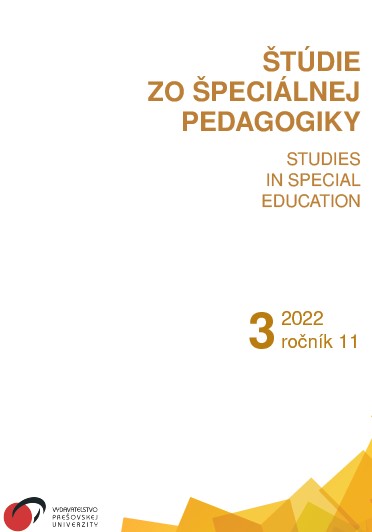Dyskalkúlia v komorbidite s úzkosťou z matematiky v dospelosti
Dyscalculia in comorbidity with matematics anxiety in adult
Author(s): Monika Janíček Pavelová, Erik ŽovinecSubject(s): Higher Education , Educational Psychology, Cognitive Psychology, Developmental Psychology
Published by: Vydavateľstvo Prešovskej univerzity v Prešove
Keywords: anxienty of mathematic; an adult with dyscalculia; dyscalculia; a disorder of mathematical abilities; developmental dyscalculia;
Summary/Abstract: We often encounter a disorder of mathematical abilities, although it is not primarily determined as a diagnosis of developmental dyscalculia. It is not only related to the fear and anxiety of failure in mathematics, but also of failure in everyday life. In solving everyday problems, such as counting purchases, planning financial transactions, interest rates, discounts, etc. These difficulties cause fear, stress and anxiety in individuals. Mathematical impairment – developmental dyscalculia is transmitted to adulthood. As many as 22 % of adults in the UK, according to Chinn (2020), report that their mathematical difficulties limit their daily lives. This paper focuses on the analysis of a questionnaire from the English translation by Chinn (2020) and its application in practice in the Slovak population in the form of a case study. The aim of the paper is to use a case study to point out the importance of investigating math anxiety in the diagnosis of math disorders and at the same time to show how anxiety and fear of math is transferred into adulthood into the real life of an individual. The paper discusses what compensatory mechanisms individuals have built for functioning in everyday life with mathematics. In the text, the author presents two case studies of university students who were diagnosed with dyscalculia as children. The case studies focus on their anxiety about the perception of mathematics in everyday life and their compensatory mechanisms, which they have built up during their lifetime. The studies are conducted using the interview method based on the Mathematical Anxiety Test (Chinn, 2020).
Journal: Štúdie zo špeciálnej pedagogiky
- Issue Year: 11/2022
- Issue No: 3
- Page Range: 6-18
- Page Count: 13
- Language: Slovak

